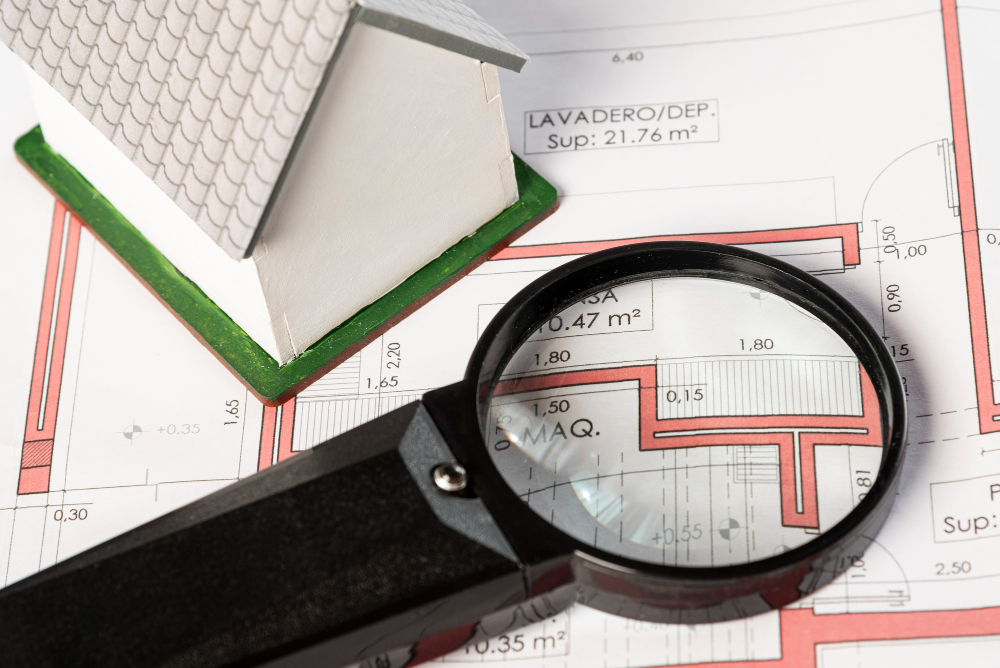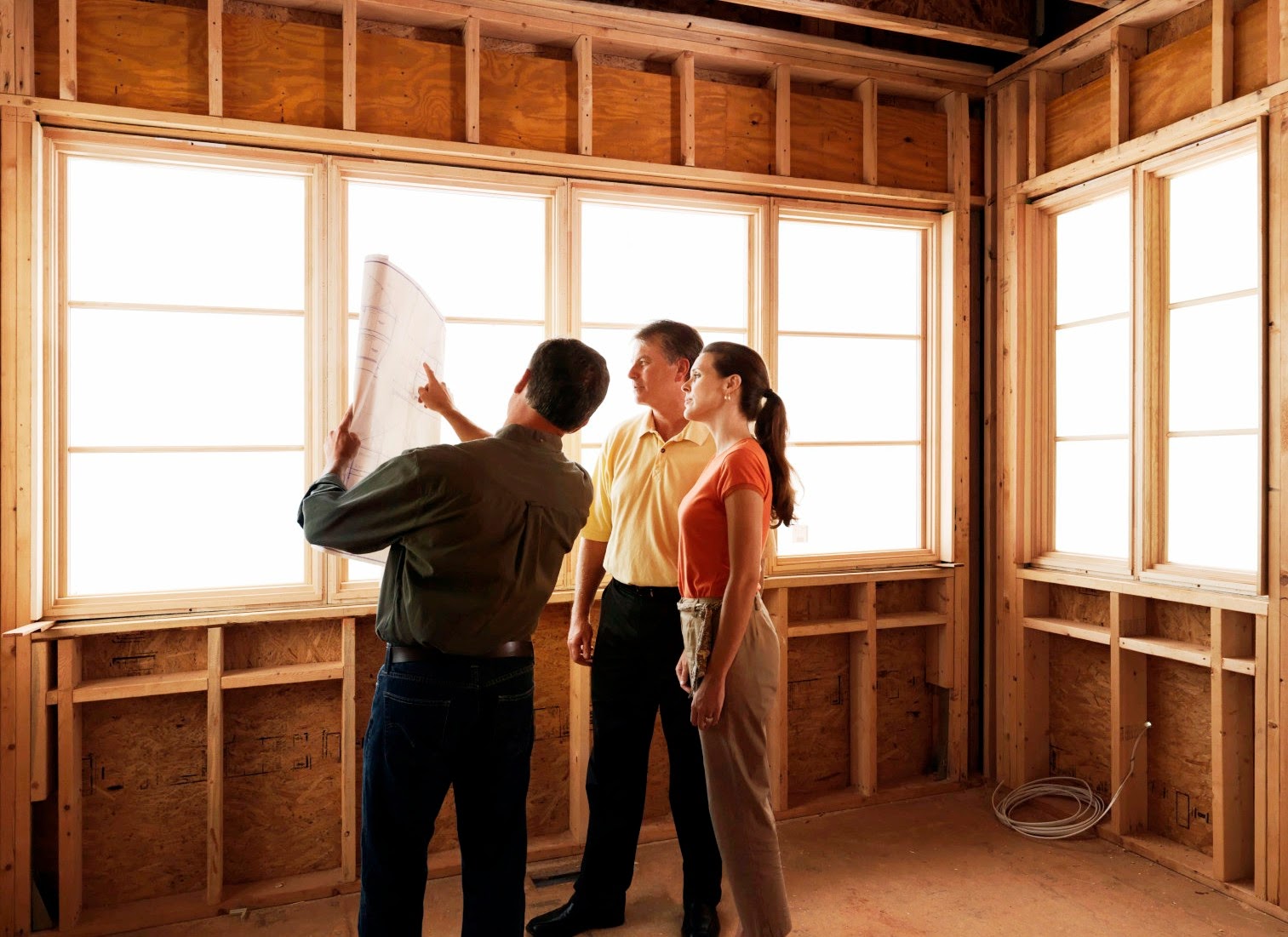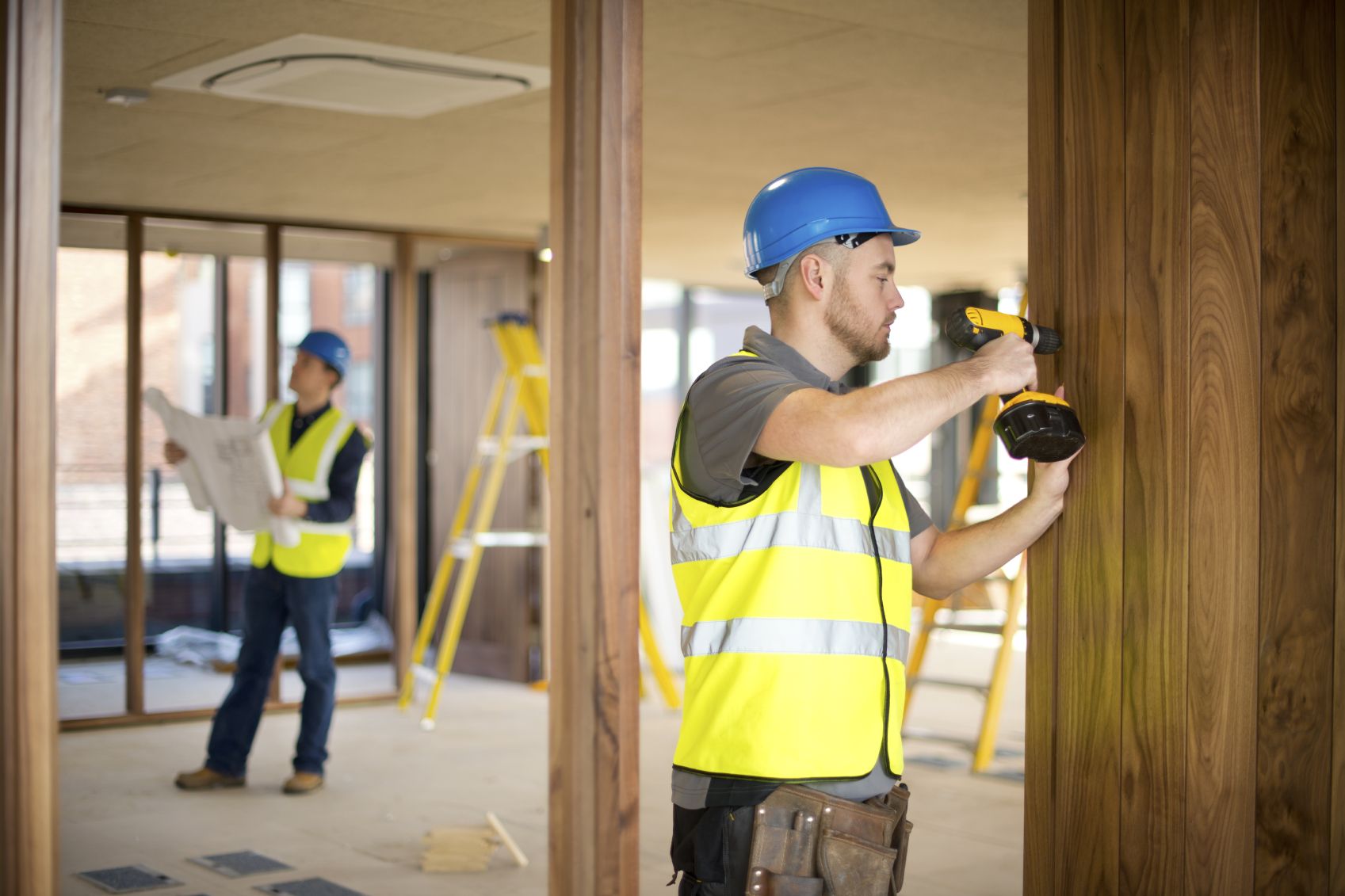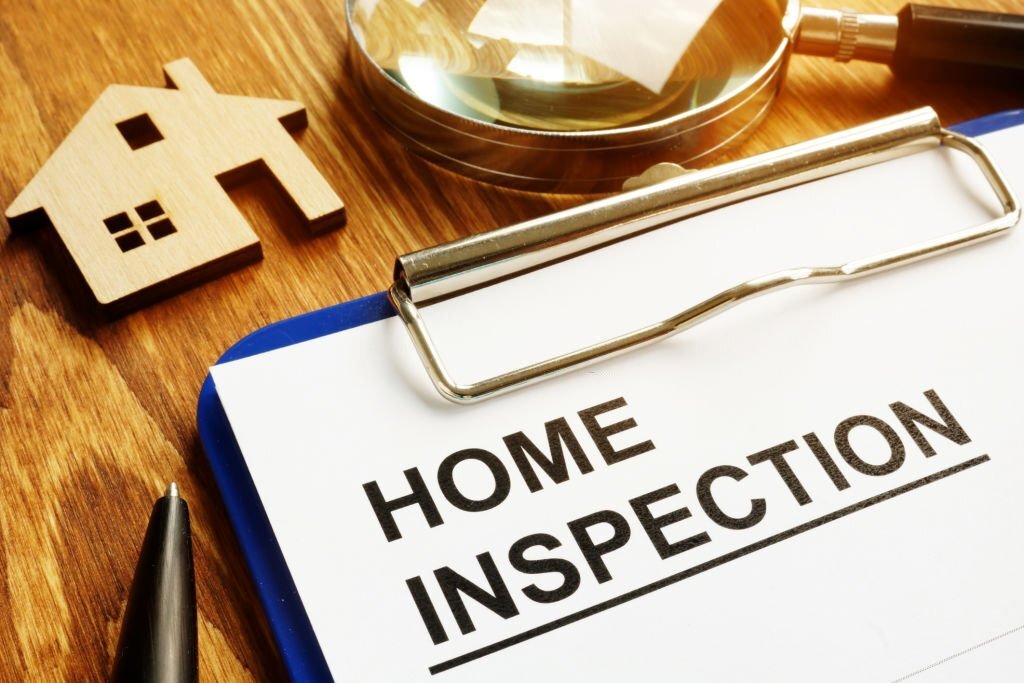Unveiling the Secrets of a Comprehensive Home Inspection Report

Purchasing a home is one of the biggest investments most people will make in their lifetime. When you’re getting ready to buy a house, it’s important to learn as much as possible about the condition of the property before finalizing the sale. This is where a comprehensive home inspection report comes in handy.
A thorough home inspection conducted by a qualified professional can uncover issues with the home that may not be noticeable to the untrained eye. The inspection report provides detailed information about the condition of the home’s major systems and components, enabling buyers to make an informed decision about proceeding with the purchase.
In this blog post, we’ll explore what’s included in a comprehensive home inspection report and how it can help safeguard your investment as a homebuyer.
What Exactly is a Home Inspection Report?
A home inspection is a detailed visual examination of the physical condition of a house and its systems. The inspection is conducted by a professional home inspector who has the skills, knowledge and experience to thoroughly evaluate the property inside and out.
The inspector will spend 2-3 hours on-site physically examining the home’s structural elements, exterior, roof, plumbing, electrical systems, HVAC, and more. The inspector will operate all systems and appliances to check functionality. Defects and issues that pose safety risks or indicate substantial repairs are needed will be noted.
After completing the physical inspection, the home inspector prepares a detailed written report summarizing their findings. This includes describing any problems or defects found, along with recommending repairs, replacements, or further evaluation by specialists. Photos are typically included to document issues.
The standard home inspection report format outlines the home’s major systems and components, with the condition, deficiencies, and any recommendations for repairs noted in each section. Key information contained in a comprehensive home inspection report generally includes:
General home facts
Essential data like square footage, year built, number of bedrooms/bathrooms, etc.
Site elements
Condition of driveways, walkways, patios, grading, drainage, vegetation, fencing and other exterior elements.
Exterior
Siding, trim, paint, windows, doors, flashing, eaves, and any structural problems.
Roof – Roof age
Material and condition, gutters and downspouts, visible flashing, chimneys, and skylights.
Attic – Framing, ventilation, insulation, and signs of leaks.
Plumbing
Condition of water supply and distribution pipes, fixtures, drains, water heating equipment, and sump pumps.
Electrical
Service panel, wiring, outlets, switches, lighting, grounding, and smoke & carbon monoxide detectors.
Heating and cooling
Condition and age of equipment, controls, air flows, ducts, and chimneys or vents (for gas appliances).
Ventilation
Exhaust fans, ventilation for gas appliances, dryer vents, and whole house ventilation.
Interiors
Walls, ceilings, floors, windows, doors, cabinets, railings, and appearance.
Garage
Siding, roof, doors, windows, electric/automatic openers.
Household appliances
Basic check of built-in appliances like ovens, cooktops, dishwashers
Life safety – Fire, CO alarms, egress, ventilation, and other safety-related items.
Pests – Signs of wood destroying insects, rodents, pest entry points, and conducive conditions.
In addition to detailing deficiencies, the report will identify areas that meet acceptable standards or are in good condition. The home inspection report serves as an objective reference point about the house’s physical condition to help buyers determine if they are comfortable moving forward with the home purchase knowing the repairs that will be required.
Why a Home Inspection Report Matters
There are several important reasons why reviewing a comprehensive home inspection report is a must for all homebuyers:
It protects your investment
The purchase price of a home usually represents the largest single investment a person will ever make. Knowing the true condition of all systems and components before you buy helps shield you from unpleasant and costly surprises after closing on the home.
It allows you to negotiate repairs
The seller is usually more willing to negotiate credits or repairs for issues identified prior to the sale versus problems uncovered after closing. A thorough inspection report gives you the facts needed to negotiate with the seller.
It makes financing easier
Lenders want to see the home inspection report. Knowing about deficiencies ahead of time allows issues to be addressed before the lender conducts their appraisal, which can expedite financing.
It informs your home maintenance
The inspection report provides critical information on which systems and areas need attention, allowing you to start planning and budgeting for future repair and upgrade projects. This helps extend the life of your home.
It reveals safety issues
Inspectors test for issues like grounding, gas leaks, carbon monoxide, smoke alarms, and other critical life safety systems that protect your home’s occupants.
It allows objective decision-making
Having detailed impartial information on the home’s physical condition allows you to make a rational buying decision based on facts vs. emotions.
Without a professional home inspection and report, buyers lack vital information that allows them to carefully consider a home’s valuation and make an informed purchase decision that takes future repair costs into account. The inspection arms buyers with objective data to protect their interests in what for most people is the biggest purchase they’ll ever make.
What’s Inspected and Included in the Home Inspection Report?
Home inspectors evaluate all aspects of the property using a standardized checklist based on the InterNACHI Standards of Practice. While inspectors tailor reports to each home, you can generally expect to see the following elements covered in detail:
Structure/Foundation/Framing
The home’s foundation supports the entire structure. The inspector will evaluate:
- Foundation walls and materials (e.g. poured concrete, concrete block, stone, brick)
- Indications of settling or movement like cracks or shifting
- Beams, posts, joists, subfloors, structure of walls and ceilings
- Basement/crawlspace conditions
- Signs of water intrusion
Any issues with the foundation can lead to significant structural repairs.
Exterior
A home’s exterior takes a beating from the elements. The inspector looks at:
- Siding materials and condition (e.g. wood, vinyl, stucco, brick)
- Trim, eaves, paint/finish, condition of caulking and flashing
- Windows and doors for operation, defects, and leaks
- Attached porches, decks, steps, patios, balconies
- Railings and guards
- Vegetation contacting or interfering with the home
Problems here can lead to costly repairs and water intrusion if left unaddressed.
Roof
As a home’s first line of defense, the roof plays a critical role. Inspectors will:
- Determine roof style (gable, hip, shed, flat, etc.) roofing material and age
- Evaluate the condition of roof coverings (e.g. asphalt, wood, tile, metal)
- Look for curling, loose, or missing shingles/tiles, granule loss, and moss buildup
- Check flashings around roof penetrations (vents, skylights, pipes)
- Inspect gutters and downspouts for proper drainage
Roof leaks can damage the home’s structure and interior if not fixed quickly.
Attic
Inspectors want to see what’s going on in the attic space. They’ll look at:
- Framing – rafters/trusses, bracing, connections
- Sheathing between rafters
- Insulation coverage and depth
- Ventilation via soffit/eave vents, attic fans, ridge and gable end vents
- Signs of leaks, condensation, or pest activity
Deficiencies here can lead to mold, rot, poor energy efficiency, ice dams, and excess moisture.
Plumbing
A home’s plumbing system must safely supply water and drain wastes. Inspectors examine:
- Water supply lines, shutoff valves, pressure
- Drain, waste, and vent piping
- Fixtures like faucets, toilets, tubs/showers for operation and leaks
- Water heating equipment like water heaters, recirculation pumps
- Fuel storage and supply lines
- Sump pumps, ejector pumps, well components
Plumbing issues can be messy, unhealthy, and extremely damaging if sewage backs up.
Electrical
Today’s homes demand a lot of power. Inspectors look at:
- Service panel/meter – capacity, main disconnect, grounding, wiring
- Breakers or fuses for overheating or doubling-up
- Wiring – exposed wires, splices, damaged cables
- Switches, outlets, junction boxes for proper operation
- Lights, ceiling fans, ventilation fans for operation
- Smoke, CO alarms, security systems
Faulty electrical power is one of the most likely causes of house fires.
HVAC
Heating and cooling systems represent a home’s biggest utility costs. Items evaluated include:
- Heating equipment age/condition – furnace, boiler, heat pump, solar
- Fuel source and storage if gas, propane, or oil
- Combustion air supply and exhaust venting
- Condition of the distribution system – ducts, pumps, radiators
- Thermostats and controls
- Central air conditioning system and power supply
- The general operation and temperature differentials
Problems here can make the home uncomfortable or even dangerous.
Venting
Inspectors examine venting systems for:
- Bathroom/kitchen exhaust fans vented outside
- Clothes dryer venting to the exterior
- Combustion appliance flues (water heaters, furnaces, fireplaces, etc.)
- Range hoods exhausting to the exterior
- Whole house ventilation system (if present)
Inadequate venting can allow dangerous gases to accumulate.
Interiors
Interior finishes may not be aesthetically pleasing but have functional aspects. Inspectors look at:
- Walls and ceilings for indications of leaks
- Condition of doors and windows
- Stairs and railings for damage and safety
- Evidence of molds or pests
Interior problems can be costly to remedy if extensive.
Garage
The garage often contains dangerous systems. The inspector will:
- Evaluate the vehicle doors and automatic openers
- Check the overall structure of the walls/roof/foundation
- Operate the garage door opener safety mechanisms
- Inspect electrical, heating, and fire separation
Malfunctioning garage doors or openers can damage vehicles or injure users.
Appliances
Home inspectors may test basic appliance operations including:
- Oven, stove, cooktop, range for heating capability
- Dishwasher drain line for leaks and operation through a cycle
- Garbage disposal runs
- The exhaust hood above the stove operates
- Refrigerator cools and water/ice dispense if equipped
Built-in appliance defects may require expensive repairs or replacement.
Life Safety
Life safety systems receive careful attention:
- Smoke alarms in and outside sleeping rooms
- Carbon monoxide alarms near bedrooms and fuel-burning appliances
- Fire extinguishers if previously installed
- Fire separation between units, flooring, at the garage
- Guardrails, handrails on stairs, steps, decks
Malfunctioning safety systems put lives at risk.
Pests/Wood Destroying Insects
Inspectors look for:
- Signs of damage from termites, carpenter ants, carpenter bees
- Mud tunnels indicating active infestations
- Conducive conditions for pests like wood-soil contact, cellulose debris
- Past or current treatment evidence and warranties
Pest damage can jeopardize the structure if left unchecked.
This covers the major areas and components inspected in a standard home inspection. The inspector will also make note of recalls, maintenance needs, useful remaining life estimates, and items to monitor in the future. Photos help document issues for easier reference.
Armed with this detailed inspection report, buyers have objective information to evaluate before finalizing a purchase.
Leveraging the Home Inspection Report
As a buyer, how can you use the results of the home inspection report to your benefit? Here are some smart ways to leverage the inspection findings:
Negotiate repairs or credits
Use major defects found to negotiate with the seller, either to correct issues prior to closing or provide a credit amount you can use towards future repairs.
Adjust offer price
If repairs needed are substantial, consider adjusting your offer price to help offset future repair costs.
Ask sellers to disclose known defects – Require the seller to disclose defects identified in the inspection that they may have been aware of but did not disclose upfront.
Terminate contract contingent on repairs
Making necessary repairs a condition of closing puts pressure on the seller to correct major issues before the sale is finalized.
Withdraw offer
If the inspection reveals deal-breaking defects, you can exercise your right to withdraw the offer and walk away.
Renegotiate closing date
If repairs found will take time, ask for a delayed closing date to provide time for issues to be fixed before taking ownership.
Require warranties or guarantees
Where possible, require the seller to provide warranties or guarantees on repairs made to defective systems.
Adjust home insurance
Inform your home insurer of issues identified so policies and coverage amounts can be adjusted accordingly.
Coordinate contractors
Hire contractors to begin making quotes or scheduling work so repairs can begin immediately after closing.
The inspection report creates an opportunity to negotiate with the seller, minimize risks, and schedule immediate repairs when you take ownership.
Selecting the Right Home Inspector
In order to rely upon the home inspection report, it’s critical to hire a reputable inspector. Here’s how to pick the best inspector for the job:
Check licensing
In most states, home inspectors are required to hold a current license confirming they meet experience and educational requirements.
Look for certifications
Nationally recognized certifications like InterNACHI or ASHI show inspectors follow rigorous standards and ethics.
Read online reviews
Customer reviews on Google or Yelp offer insight into an inspector’s thoroughness, professionalism, and reporting.
Ask about experience
Look for an inspector with 5+ years of experience and who has performed 500+ inspections.
Look for specialties
Some inspectors specialize in certain types of homes like historic homes, green homes, condos, etc.
Request sample reports
Review sample reports to ensure they are comprehensive, detailed, easy to understand, and contain useful photos.
Compare services offered
Look for inspectors offering thermal imaging, sewer scope, mold testing, and other value-added.
Ask about technology
Advanced tools like drones and moisture meters can boost an inspection’s thoroughness.
Inquire about memberships
Membership in industry groups like ASHI and NAFI demonstrates a commitment to continuing education.
Taking time to select the right home inspector provides peace of mind in the rest of the home-buying process.
Understanding the Home Inspector’s Limitations
While home inspectors provide invaluable information to buyers, there are limitations to what a standard home inspection can uncover. Keep the following in mind:
Inspection is visual
Inspectors do not remove siding, drywall, insulation, or dismantle systems. Issues concealed and not visible cannot be identified.
Invasive testing prohibited
Home inspectors do not perform invasive testing that damages property or its structure.
Wear and tear expected
Minor wear and tear, cosmetic issues, and normal maintenance needs are not considered major defects.
Limited appliance testing
Appliances are tested for basic operation only, not performance or recalls.
Code compliance unknown
Inspectors can identify potential problems, but cannot certify if a home meets building codes.
No guarantees
An inspection is a snapshot in time. Inspectors cannot predict future problems or the lifespan of systems.
Fuel tanks not evaluated
Home inspectors do not evaluate underground fuel storage tanks or soil contamination.
While thorough, an inspection does not eliminate all risks in a real estate transaction. Business contingencies like inspections protect buyers.



